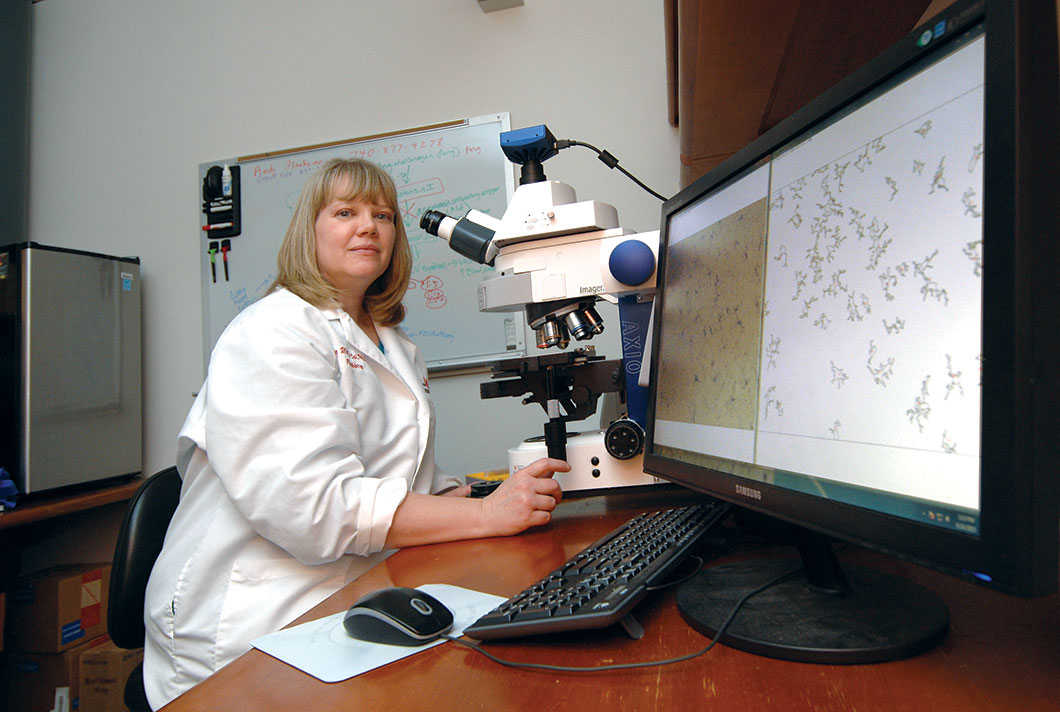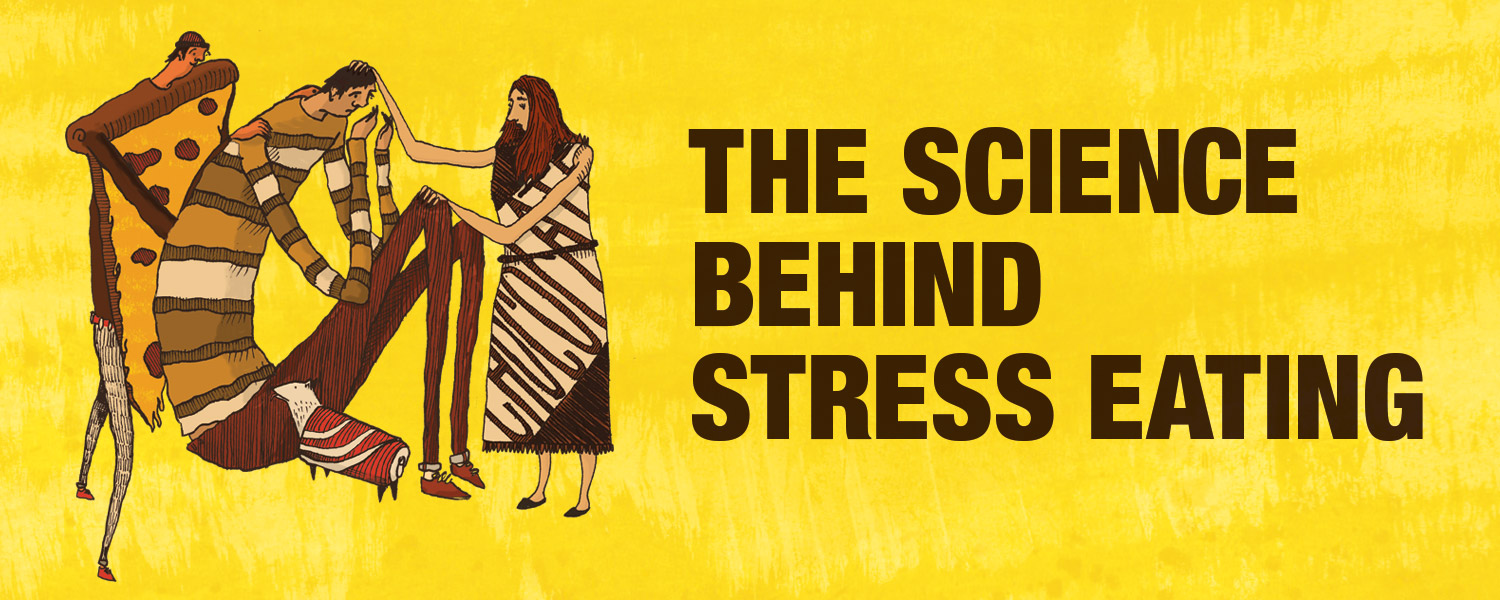The Science Behind Stress Eating
Yvonne Ulrich-Lai ’94 studies the neural factors that fuel the obesity epidemic.
When faced with a stressful situation at home or work, many of us head straight for high-calorie junk food. These so-called comfort foods not only taste good, they actually make us feel less stressed, both mentally and physically, says University of Cincinnati neuroscientist Yvonne Ulrich-Lai ’94. However, people who identify as eating junk food for comfort tend to weigh more, she explains. In an effort to understand the mechanisms in the brain that contribute to obesity and to eventually develop better ways to treat and prevent it, Ulrich-Lai studies how diet can influence the response to stress.
After Harvey Mudd, the biology alumna started dental school at the University of Minnesota. By the end of the first year, Ulrich-Lai realized she preferred to spend her time in a research lab, so she instead enrolled in the university’s neuroscience graduate program. After completing her PhD studying how the adrenal gland regulates stress, Ulrich-Lai came to the University of Cincinnati for a postdoctoral fellowship and then joined the faculty in the Department of Psychiatry and Behavioral Neuroscience in 2007.

Unlike studies in humans, experiments in rodents afford researchers like Ulrich-Lai complete control over their subjects’ diets and other lifestyle factors, as well as the ability to study the underlying brain mechanisms in great detail. In her laboratory, Ulrich-Lai models a stressful life experience in rats by confining them to a clear but well-ventilated plastic tube for 20 minutes. It’s kind of like being in a crawl space, she explains. “The rats can wiggle around, but they can’t walk around freely.”
Much like humans exposed to a stressful situation, rats enclosed in the plastic tube have elevated heart rates and higher levels of the stress hormone corticosterone (the rat equivalent to the human stress hormone cortisol). They also spend less time exploring a new environment, indicating higher levels of anxiety, than unstressed rats.
To model stress eating, Ulrich-Lai gave rats a small amount of sugary drink twice a day for two weeks prior to the stressful experience. The sweetened beverage, given in addition to the rats’ regular food and water, made up about 10 percent of their total caloric intake—the equivalent of about two 100-calorie snacks in humans. She found that the drink improved the animals’ ability to cope with the confinement. Compared to rats that received twice daily water, those that received the sugar drink showed smaller increases in heart rate and corticosterone levels, as well as reduced anxiety, following the stressful experience.
“It seems like the sweetened drink ‘takes the edge off’ the stress response,” explains Ulrich-Lai. The rats still show some reaction, which is important since these stress responses are key to survival in a life-or-death situation. “Our thinking is that this is one of the reasons some individuals might choose to eat these foods,” Ulrich-Lai says. “Comfort foods not only make them feel better emotionally, but reduce their physiological response to stress in a way the person may not even be aware.” When Ulrich-Lai gave the rats a drink made with artificial sweetener rather than sugar, she found similar stress-dampening results. However, when she administered the sugar solution directly into the rats’ stomachs, which allowed them to get the physiological effects of the sugar without tasting it, there was no effect on stress levels.
“This suggested to us that there is something about the fact that the sugar tastes good and is very rewarding that is responsible for its effects on stress,” she says. Ulrich-Lai then hypothesized that other naturally rewarding experiences not involving food could have a similar effect. Indeed, similar stress relief was achieved when the rats were allowed to engage in sexual activity for 30 minutes every day for two weeks.
More than one-third (34.9% or 78.6 million) of U.S. adults are obese.
– Journal of American Medicine, Feb. 26, 2014
“We think this is telling us that when individuals engage in these naturally pleasurable behaviors, it does confer stress protection,” she explains. Some people might choose to use food. Others might choose to go running. “Whatever people naturally enjoy could provide stress relief,” she adds.
In order to better understand and treat obesity, Ulrich-Lai is focused on understanding the brain pathways involved in the stress reduction, zeroing in on the basolateral amygdala (BLA), a brain area that is involved in reward. When she inactivated the rats’ BLA using a toxin, sugar consumption no longer dampened the behavioral and physiological stress response. Ulrich-Lai’s lab is currently examining the molecular changes in BLA neurons that occur following sugar consumption.
This new research suggests that pleasurable behaviors engage a stress reduction pathway that is already present in the brain. Improving our understanding of this neural pathway could provide insight on how better to cope with stress, while also offering new strategies that could help combat the country’s obesity epidemic.
